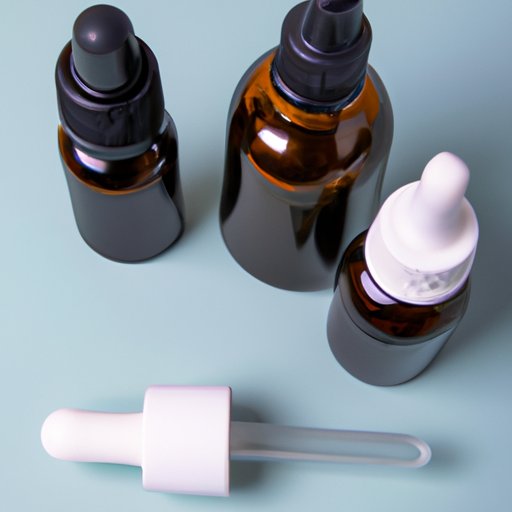
I. Introduction
Having a stuffy nose can make it harder to breathe, sleep, and carry out daily activities. It’s usually caused by inflammation and excess mucus in the nasal passages, which can be triggered by allergies, illness, or environmental factors. While over-the-counter medications can be effective, natural remedies can also help you clear your nose fast without any side effects. In this article, we’ll explore some of the best natural remedies for nasal congestion, so you can breathe easy again.
II. Use steam to clear your nose
Steam is a quick and easy way to clear your nasal passages and relieve stuffiness. When you inhale steam, it helps to thin out mucus and reduce inflammation in your nostrils. There are different ways to use steam:
- Inhaling steam from a bowl of hot water
- Taking a hot shower
- Using a humidifier
To maximize the effectiveness of steam, you can add essential oils like eucalyptus or peppermint to the water. This will further reduce inflammation and provide a soothing sensation. Remember to keep your face at a safe distance from the hot water or humidifier to avoid burns or irritation.
III. Use a Neti Pot
A Neti Pot is a small container that’s used to rinse out your nasal passages with a saline solution. This method can help to flush out excess mucus and allergens, relieve congestion, and reduce inflammation in your sinuses. Here’s how to use a Neti Pot safely and effectively:
- Fill the Neti Pot with lukewarm distilled or sterilized water, and add a teaspoon of salt.
- Position yourself over a sink or basin, and tilt your head to one side.
- Place the spout of the Neti Pot into the upper nostril, creating a seal.
- Tilt the Neti Pot to allow the solution to flow from the upper nostril and out of the lower nostril.
- Repeat on the other side, tilting your head in the opposite direction.
- After using the Neti Pot, blow your nose gently to remove any excess liquid.
Make sure to clean and dry your Neti Pot thoroughly after each use, and use only distilled or sterilized water to avoid the risk of infection.
IV. Use Nasal Sprays
Nasal sprays can also be effective at relieving nasal congestion by shrinking blood vessels and reducing inflammation in your nostrils. There are two types of nasal sprays: over-the-counter (OTC) and prescription.
OTC nasal sprays typically contain decongestants like oxymetazoline or phenylephrine, which can provide fast relief but should not be used for more than three days in a row, as they can cause rebound congestion.
Prescription nasal sprays may contain corticosteroids like fluticasone or mometasone, which can reduce inflammation and provide long-term relief for nasal congestion caused by allergies or nasal polyps. They usually take several days to start working, and should be used as directed on the label or by your doctor.
Using nasal sprays may have some risks and considerations, such as nosebleeds, headaches, and interactions with other medications. It’s therefore important to consult your doctor before using any nasal spray, especially if you have any underlying medical conditions.
V. Drink lots of fluids
Staying hydrated is essential for relieving nasal congestion and preventing dehydration, which can worsen your symptoms. Drinking fluids can help to thin out mucus and keep your nasal passages moist and healthy. The best types of fluids to drink for maximum effect are:
- Water
- Warm tea with honey and lemon
- Broth or soup
- Hot water with lemon and ginger
Try to avoid beverages that can dehydrate you, like coffee, alcohol, and sugary drinks. You can also use a humidifier or vaporizer to add moisture to the air and keep your nasal passages hydrated.
VI. Use Essential Oils
Essential oils are natural plant extracts that can be used to clear your nose naturally. Some popular types of essential oils for this purpose include peppermint, eucalyptus, and tea tree oil. Here are some tips for using essential oils safely and effectively:
- Add a few drops of essential oil to a bowl of hot water and inhale the steam
- Dilute the essential oil with a carrier oil like coconut oil or jojoba oil, and apply it to your chest or under your nose
- Use a diffuser to distribute the essential oil throughout the room
Remember to choose high-quality essential oils that are pure and organic, and to avoid using them directly on your skin without proper dilution. Some essential oils may also be toxic if ingested or inhaled in large amounts.
VII. Conclusion
Clearing a stuffy nose can be challenging, but with the right natural remedies and tips, you can breathe easy again. In this article, we’ve covered some of the most effective ways to relieve nasal congestion, such as using steam, a Neti Pot, nasal sprays, drinking fluids, and essential oils. Make sure to follow the instructions carefully and consult your doctor if your symptoms persist or worsen.




